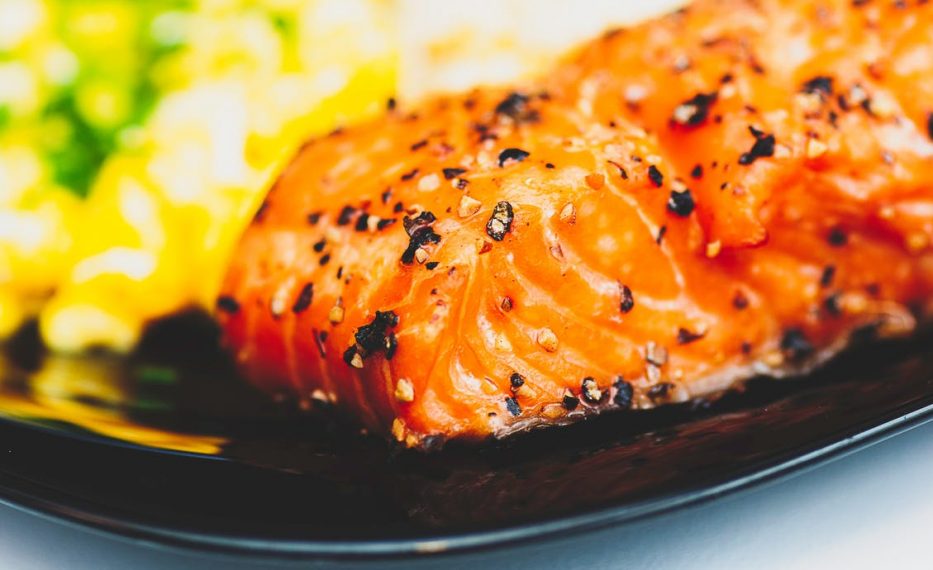There has been lots of coverage in the media about omega-3 fats making children “brainier” but is this actually true?? What about oily fish? And what if your family is vegetarian or vegan? Have you ever wondered about giving your child an omega-3 fatty acid supplement?
What are omega-3 fats?
They are part of a group of fats called long chain polyunsaturated fats (LCPUFA’s) and are essential nutrients for humans. This means that must be obtained from foods/our diet. Omega-3 fats are one type of LCPUFA, there are also omega-6 fats.
There are 3 types of omega-3 fats known as as eicosapentanoic acid (EPA), docosahexanoic acid (DHA) and alpha-linolenic acid (ALA). EPA and DHA are found in fish and other marine oils, whilst ALA is found in plant oils such as flaxseed/linseed oil and algae oil (vegetarian/vegan sources).
It is the ratio of omega-6 to omega-3 fats that is crucial. We tend to eat too much of the omega-6 fats (sunflower, corn or soya oil) and not enough of the omega-3 fats (oily fish).
Why are these fats important?
Omega-3 (and omega-6) fats play a central role in normal development and functioning of the brain and nervous system. Babies receive these fats from their mother before birth (across the placenta) and after birth from breast milk in order to optimise eye and brain function.
Omega-3 fats are part of all cell membranes in our body, have anti-inflammatory properties and are important for neurotransmitters in our brains, which affect our mood, attention and motivation.
Omega-3 fats and children’s learning:
There is a potential role for omega-3 fats in the management of attention deficit/hyperactivity disorder (ADHD). ADHD occurs in 8-12% of children worldwide and symptoms include aggression, clumsiness, mood swings, literacy problems, sleep disturbances and temper tantrums.
About half of the studies looked at in a recent review, found a beneficial effect of omega-3 fatty acid supplementation on ADHD symptoms. EPA seems to be the most important fatty acid in this group of disorders and a dosage of around 560mg for 3-4 months has been found to be effective.
For children without ADHD or other learning problems, supplementation with omega-3 fats does not seem to improve intelligence, memory, verbal learning and visual attention, at least not on the tests that were studied.
So should we give our children omega-3 supplements?
For children without diagnosed learning problems, it seems that the evidence is actually not that strong for omega-3 fat supplements making our children “brainier”, but as they have many other health benefits it is important to encourage your children from a young age to enjoy eating oily fish. Salmon, mackerel, sardines and herring are all very good sources. Try them in fish cakes, fish pie, mackerel pate’, grilled salmon topped with pesto, etc. Recipes to follow!
Please note:
I have only spoken about children here, but there are MANY known benefits of eating oily fish for people of all ages, such as lowering blood cholesterol, lowering blood pressure and the anti-inflammatory effects on rheumatoid arthritis, Alzheimers disease, depression and many more. So eat oily fish once or twice a week, whenever you can!!
Paula x
References:
- Supplementation of N-3 LCPUFA to the Diet of Children Older Than 2 Years: A Commentary by the ESPGHAN Committee on Nutrition. ESPGHAN Committee on Nutrition: Carlo Agostoni, Christian Braegger, Tama ́s Decsi, Sanja Kolacek, Walter Mihatsch, Luis A. Moreno, John Puntis, Raanan Shamir, Hania Szajewska, Dominique Turck, and Johannes van Goudoever JPGN Volume 53, Number 1, July 2011.
- Fatty acids in the management of ADHD. Dr Carrie Ruxton and Dr Emma Derbyshire. Complete Nutrition, vol 13 No 4, September 2013
- Schuchardt et al Significance of long-chain polyunsaturated fatty acids for the development and behaviour of children. Eur J Pediatr 2010, 169: 149-164
- Omega-3 fatty acids in health and disease: the science behind the headlines. Professor Philip C Calder, University of Southampton. NHD Volume 3.22, Nov 2013





